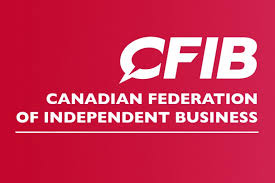A coalition of 21 prominent business organizations, led by the Canadian Federation of Independent Business (CFIB), has formally called on the federal government to abandon its planned increase to the capital gains inclusion rate. The groups, representing diverse sectors from restaurants to agriculture, argue that the changes will have a detrimental effect on small and medium-sized enterprises (SMEs), many of which rely on reinvestment and access to financing for future growth and stability.
Under the new rules, which have been in place since June, individuals’ capital gains inclusion rate will increase from 50% to 66.7% for gains over $250,000 annually.
In a letter addressed to Finance Minister Chrystia Freeland, the CFIB and its allies, including Restaurants Canada, Grain Growers of Canada, and the Canadian Medical Association, stressed the potential negative consequences of the proposed tax hike. The groups also requested that the Canadian Entrepreneurs’ Incentive (CEI) be made available to all business sectors, including restaurants, hotels, and professional corporations, which are currently excluded.
While the coalition welcomed the federal government’s recent increase to the Lifetime Capital Gains Exemption (LCGE) to $1.25 million—set to be indexed to inflation from 2026—concerns remain over the broader tax environment for business owners. The LCGE has been a long-standing priority for CFIB, which views the increase as a victory for Canadian entrepreneurs. However, the group argues that the benefits of the exemption could be undermined by the steep rise in the inclusion rate.
Under the new capital gain rules, qualifying business owners selling their companies can benefit from the new LCGE and CEI exemptions, which CFIB President Dan Kelly detailed in an article on their website.
The CFIB warns that while some sectors will benefit from the new CEI, many will not, leading to an uneven playing field for different types of businesses.
The CFIB argues that the increase in the inclusion rate will not just affect the wealthiest Canadians, as the government claims, but will also hurt middle-class business owners and those aspiring to grow their enterprises. The organization points out that many small business owners hold investments within their corporations, which are vital for future growth or as a buffer during economic downturns. The higher tax burden could discourage investment and make it more difficult for businesses to weather challenging times. During the pandemic, many business owners relied on alternative forms of investment to survive, a lifeline that the CFIB fears will be jeopardized under the new rules.
For context, only 1 per cent of Canadians earn over $250,000 annually.
